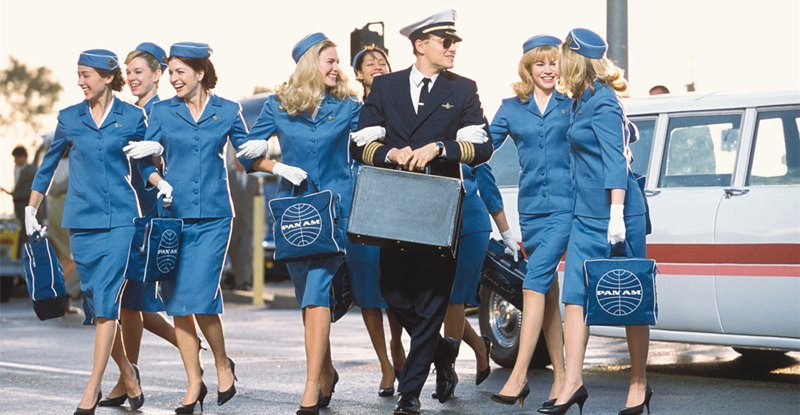“Overboard” (1987) is a male fantasy. It’s a reverse Cinderella tale. It’s also the best of two romantic comedies that Goldie Hawn and Kurt Russell made together (the other being 1984’s “Swing Shift.” And it’s a guilty pleasure, insomuch as this offering from Garry Marshall (“Laverne & Shirley,” “Pretty Woman”) is a formulaic, fluffy, unlikely story that’s entertaining in spite of all the logic-defying moments. Which is to say, “Overboard” is a cute movie, and unlike another fun Hawn comedy, “Wildcats,” its PG rating makes it fairly family-friendly–if seeing Hawn in a thong still qualifies.
Hawn plays rich-bitch Joanna Stayton, whom we see strutting about in her swimwear and garish finery, verbally abusing her valet (Roddy McDowall) and staff. She’s in a loveless marriage to a playboy type (Edward Hermann as Grant Stayton III) who’s as easily distracted as she’s easily bored. Cutaways to her mother (Katherine Helmond) on the other end of phone conversations show just where she got her snooty attitudes from.
But when the yacht pulls into the harbor at Elk Cove, Oregon, her life is about to do a 180. She phones a local carpenter for an “emergency” and tells him he has 48 hours to remodel her closet onboard to accommodate all her shoes and accessories. Then, after Dean Proffitt (Russell) completes the job, she not only refuses to pay him because he used oak instead of the cedar she never requested, but also tosses him and his tools overboard.
A reversal of fortunes begins when Joanna forgets her wedding ring on deck and returns in the dark of night to fetch it. Losing her balance, she’s knocked overboard, and though she has the presence of mind to shout at the boat to come back for her, the next thing we know we’re seeing her on the TV news as a Jane Doe who has amnesia. That’s the first “huh?” Sure, it’s explained as short-term amnesia caused by the shock of the cold water or a bump on the head by the scow that picked her up, but at this point viewers had better just relax and just accept what comes. Don’t think too hard about the morality of what Dean does, either, or the fun goes overboard too. This guy, after being stiffed, decides to claim the rich woman at the hospital and convince her she’s his wife, just to get his money’s worth. Never mind that she’s released in his custody without any paperwork. Consider that a skilled carpenter puts in 16 hours at $45 an hour ($720) and has another $300 in materials, tops. Does that justify tricking a woman into tending to your bratty boys, cleaning a pigsty of a house, staying home alone while the man goes out drinking with the guys every night–or waiting hand and foot on him and his best friend, Billy (Mike Hagerty)–and then comes home and tries to get a little action from her?
Of course, we’re not supposed to think about such things, or else Dean would come across as the world’s biggest, most misogynistic jerk. The key is Joanna’s early behavior–so patently atrocious that we want her to change, even if the agent of change is an opportunistic, deceitful carpenter who brings her home to his man-cave and man-cubs. In fact, it’s her transformation and the gradual way that she bonds with the kids and warms to her blue-collar life that make this movie fun to watch. It’s “Pygmalion” in reverse, without the wager. Though things get cheesy at times to trump the believability, “Overboard” is a pleasant romantic comedy that strikes a blow for the middle and lower classes.
Jared Rushton, Jeffrey Wiseman, Brian Price, and Jamie Wild hold their own as the Wild Things that Joanna–whom Dean convinces is really his “wife,” Annie–has to tame in order to get her new life in order and feel better about herself than she ever did as a pampered princess. It gets a little corny in the third act, but hey, would you expect otherwise en route to an upbeat ending?
Hawn clicked with Russell on the set of “Swing Shift” and have been in a relationship ever since. The ease that they have with each other shows in this comedy, evident in such small moments as when “Annie” rubs the feet of her husband after he comes home from work. She also displays the kind of Tootsie Roll personality that Marshall has coached before with his daughter in “Laverne & Shirley”–hard on the outside, and soft on the inside. There are a few surprises, but not many. The entertainment comes from watching this reverse Cinderella story play itself out.
Video:
For a 1987 film, “Overboard” looks really rough on Hi-Def. There’s a ton of noise on exterior shots with extreme negative space, and plenty of grain in other shots. Interiors with controlled lighting fare the best, but that means this transfer–using the AVC/MPEG-4 codec–is an uneven one. Filmic grain reads as noise on a digital transfer, and unfortunately the technicians weren’t able to bring it under control. Black levels are good but not great, but colors are at least realistic-looking. “Overboard” is presented in 1.85:1 anamorphic widescreen. It fills out the entire 16×9 monitor.
Audio:
The audio is also underwhelming. An English DTS-HD-MA 2.0 Surround ensures that this dialogue-driven film remains front-heavy, with zero effects coming from the rear speakers. It’s fairly distortion-free, at least, but nothing to warrant celebration. Additional audio options are Spanish Mono and French Dolby Digital 2.0 Surround, with subtitles in English, Spanish, and French.
Extras:
Bonus features? What bonus features?
Bottom Line:
“Private Benjamin” was Goldie Hawn’s post-“Laugh-In” triumph, but along with “Wildcats,” “Overboard” was solid, fun entertainment that continued to show an appreciative public that Hawn was more than a ditzy blonde.


